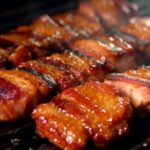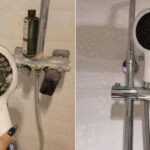Failing to promptly vent oil smoke generated during cooking can lead to its accumulation in the kitchen, gradually forming a stubborn layer of grease. Inhaling oil smoke over prolonged periods can also adversely affect one’s health, especially for those who spend a lot of time cooking.
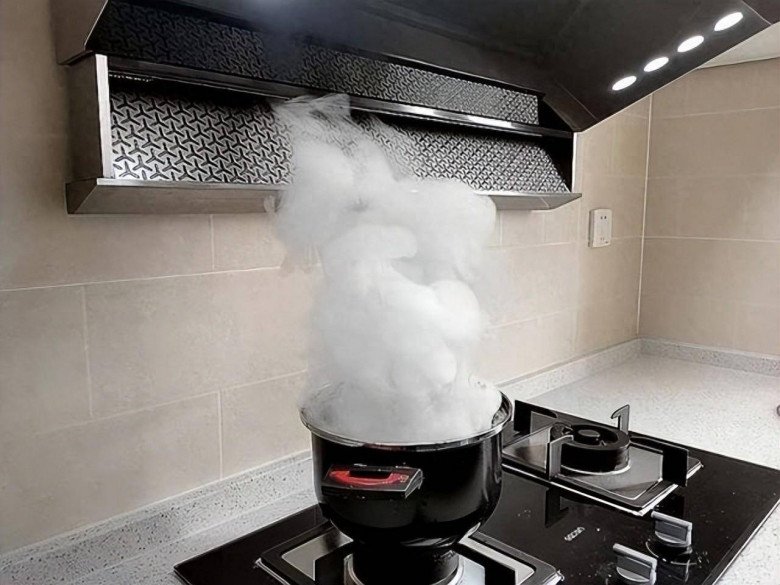
The Harmful Effects of Oil Smoke on Human Health
According to otorhinolaryngologists, there has been an increasing number of women diagnosed with laryngeal cancer in recent years. One of the main causes is prolonged exposure to cigarette smoke, and another is frequent inhalation of oil smoke generated during cooking.
This is related to the sudden changes in high-temperature environments. Specifically, cooking oils contain relatively high levels of unsaturated fatty acids such as linoleic acid, which begins to oxidize when heated to 600 degrees Celsius. As the temperature reaches 1300 degrees Celsius, the oxidizing substances start to decompose, forming various compounds, including carcinogens.
When the oil reaches a scorching 1500 degrees Celsius, the glycerin present forms acrolein—the primary component of oil smoke. Acrolein has an intense pungent odor and strongly irritates the mucous membranes of the nose, eyes, and throat. As the temperature climbs above 2000 degrees Celsius, the nitrogen oxide byproducts of oil smoke become highly toxic. At an extreme temperature of 3500 degrees Celsius, the oil in the pan ignites, and the risk of carcinogenic effects is at its peak.
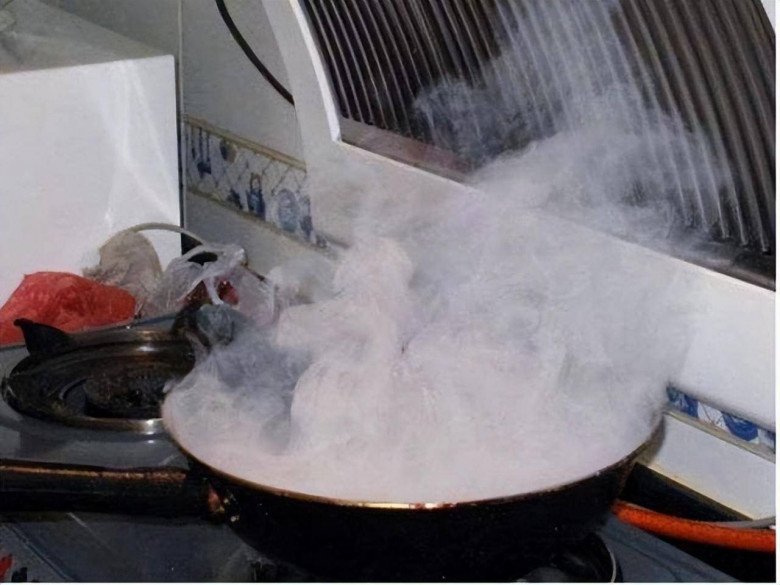
Oil smoke released during cooking has a significant impact on health. (Illustrative image)
Additionally, preparing fried, stir-fried, and sautéed dishes can increase the levels of benzopyrene, a potent carcinogen, in the air. Consequently, the smoke produced in high-temperature cooking environments can create toxic fumes that irritate the eyes and throat and damage the respiratory tract’s cellular tissue.
A study in the UK revealed that spending an hour cooking in a poorly ventilated kitchen, using low-quality stoves and gas, can be as detrimental to one’s health as smoking two packs of cigarettes daily.
Thus, oil smoke is a stealthy health hazard. Prolonged exposure to both cigarette smoke and oil smoke can lead to high blood pressure, high cholesterol, stroke, heart disease, and even cancer. This underscores the critical importance of venting oil smoke during cooking.
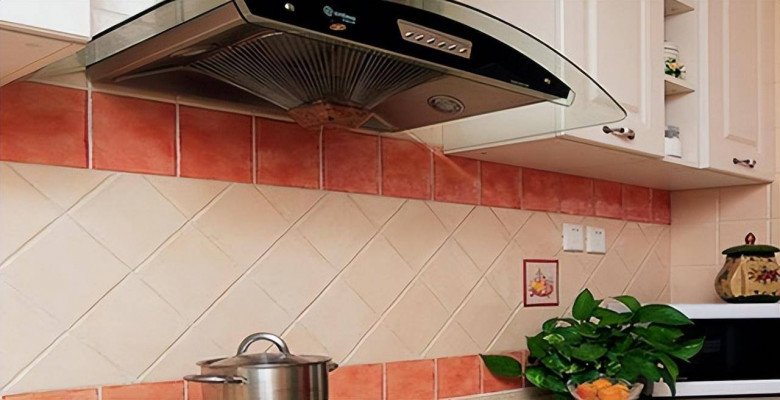
Why Does the Kitchen Still Fill with Oil Smoke Even with the Range Hood On?
Many people assume that turning on the range hood is enough during cooking. However, in reality, this is not sufficient. To cook without filling the kitchen with smoke, consider the following:
– When using the range hood, open a window slightly to maximize the venting of oil smoke. This way, the range hood can more effectively absorb and dissipate the smoke. As a result, the smoke will clear faster.
– Nevertheless, avoid opening the window too wide, as this can cause air circulation to counteract the suction of the range hood, making it harder to eliminate the smoke.
Additionally, other factors can influence the effectiveness of the range hood, such as:
– Filter Not Cleaned Regularly
If the range hood is not cleaned for an extended period, oil will accumulate on its surface, eventually clogging the exhaust port.
The filters, in particular, can become clogged if not cleaned regularly, reducing the range hood’s ability to extract oil smoke. Therefore, after prolonged use, if you notice oil buildup or a decrease in smoke extraction efficiency, thoroughly clean the range hood, both inside and out.
If you’re unsure how to clean the range hood, consider hiring a professional cleaning service to do the job.
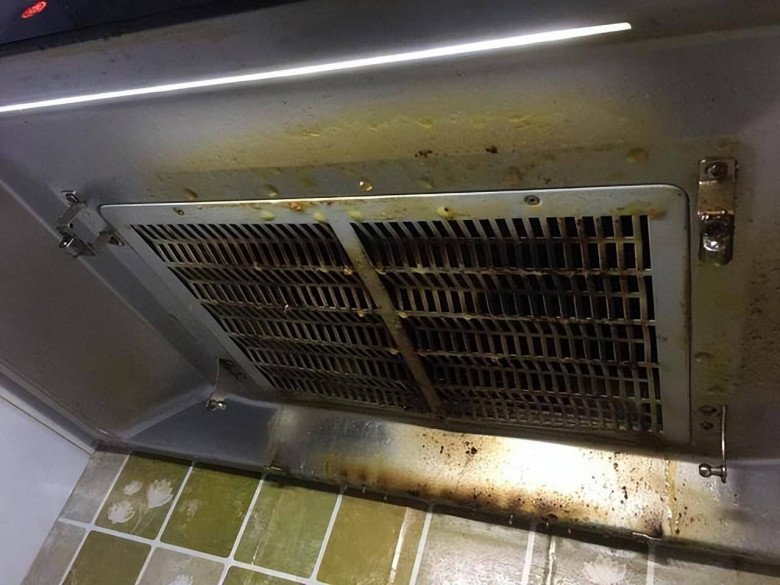
Regularly clean the range hood to prevent grease buildup. (Illustrative image)
– Improper Installation Height
The ideal distance between a side-mounted range hood and the stove is 35-40 cm. For a range hood installed above the stove, maintain a distance of 65-75 cm. Installing the range hood at the wrong height will not only be inconvenient but also compromise its smoke extraction efficiency.
– One-way Valve Not Opened
Range hood exhaust pipes are equipped with a one-way valve. If this valve fails to open properly, it will hinder the range hood’s ability to extract oil smoke. Therefore, if you encounter any issues with this valve, have it repaired promptly.
5 Ways to Reduce Your Cancer Risk When Enjoying Barbecued Meat
Introducing: The Ultimate Guide to a Safer, Healthier BBQ: 5 Ways to Reduce Cancer Risks.
We know that nothing beats a delicious BBQ, but are we aware of the potential dangers lurking behind this beloved cooking method? It’s time to uncover the truth and learn how to enjoy your grilled favorites without compromising your health. Discover the secrets to a safer BBQ experience and feast without fear.
























